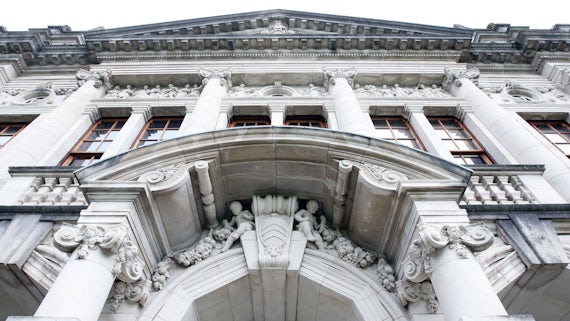Three new University Research Fellows are joining the staff in the School of Chemistry
28 Ionawr 2015

As part of the on-going expansion and investment in the School of Chemistry we are very pleased to announce that three new University Research Fellows will shortly be joining our academic staff. The appointments follow a fiercely competitive selection process that saw the School receive a record number of applications. The new University Research Fellows are:

Dr Joseph Beames joins Cardiff from the University of Pennsylvania, where he was Dreyfus Postdoctoral Fellow in Environmental Chemistry. His research seeks to probe important atmospheric, physical and analytical chemistry problems using UV-Vis and infrared spectroscopic techniques. The key goals are to sensitively and quantitatively detect trace gases and reactive intermediates, and to begin to probe the nucleation and chemical composition of particulate matter (aerosols).
Accurate monitoring of trace gases has a variety of important real-world applications ranging from biomedical sensing to explosives detection and the determination of the chemical makeup of the atmosphere. The Beames group aims to develop spectrometers for use in each of each of these areas; providing highly sensitive real time detection of many different chemical species. In addition, these spectrometers will be combined with state of the art optical trapping techniques in an attempt to provide new insights into particulate matter formation and composition.

Dr Timothy Easun is moving from the University of Nottingham, where he held the position of Senior Research Officer. His research targets the use of photochemistry to control molecular flow in microporous materials in order to make functional nanofluidic devices. This involves the functionalisation of crystalline porous materials, specifically using thermally and photochemically active components to control framework properties and direct guest uptake and release.
The key concepts that underpin his research are those of supramolecular photochemistry, nanofluidics, time-resolved spectroscopies, photocrystallography and microporous materials with nanoscale pores and channels. His work focusses on two main areas: the surface modification of metal-organic framework (MOF) crystals to photogate access to and from their pores and the design of new MOF linkers that change shape on photoirradiation. These areas require the design, synthesis and characterisation of photoactive molecules, studied by ultrafast time-resolved and spatially-resolved spectroscopies, coupled with new and emerging photocrystallographic techniques that allow us to understand in detail the behaviour of these molecules in single crystals.

Dr Louis Morrill is moving to Cardiff Chemistry from a postdoctoral position at UC Berkeley. His research is in the field of Synthetic Organic Chemistry. He is particularly interested in exploring new frontiers in organocatalysis, employing dual catalytic methods to rapidly generate molecular complexity, forming densely functionalised molecules in a stereodefined fashion. The multi-step, one-pot nature of this dual catalysis approach represents progress towards more sustainable chemistry. The development of novel organocatalysts, especially those that operate via unusual or previously unknown modes of activation, represents another significant area of interest. The utility and impact of his developed methodologies will ultimately be exemplified through its application in the total synthesis of natural products and molecules of biological significance.